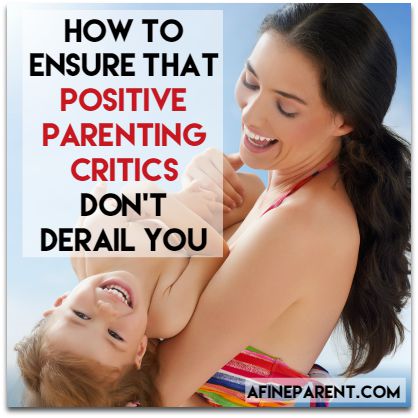 You’re a positive parent or working on becoming one.
You’re a positive parent or working on becoming one.
You’re proud of the choice you’ve made. It feels instinctive. Natural.
And your child is thriving. He trusts you. You’re building a strong connection. You expect your child to grow into a happy, confident and independent adult.
But just when you are getting comfortable in your role as a positive parent, your mother-in-law says you’re too soft. She hints (or maybe even tells you openly) you need to “discipline” your child more.
Perhaps you’ve also heard friends make comments about parenting styles and you wonder if they’re really criticizing you.
— He’ll never learn to self-soothe if you don’t let him cry.
— He’s overly attached to you.
— She’s upset, quick, distract her!
— You need to show him who’s in charge!
Western society expects a parenting approach centered on adult’s wants rather than children’s needs. Punishments, time-outs, threats and rewards have become normal tools in the parenting toolbox.
So, when you’re swimming against the tide of conventional parenting how do you defend your choices?
How do you silence the critics?
How do you stay the course when everyone seems bent on dragging you into the world where parenting is synonymous with discipline based on control and obedience?
I wondered the same.
So, I delved into the science and psychology of positive parenting. Want to know what I found out?
Let’s start with some surprising biology first…
When Does the Brain Actually Grow Up?
As we evolved to walk on two legs rather than four, the size of the female pelvis reduced considerably.
Childbirth became more challenging.
So, evolution cleverly reduced the size of the infant brain to allow for natural childbirth.
At birth, compared to other mammals, the human brain is tiny. It’s a mere 25% of its adult size.
Scientists have found that animals born into hostile surroundings tend to have more developed brains at birth to help them survive. Zebras, for example, need to be able to run with the herd just hours after being born — their relatively mature brains help them run and react appropriately when a lion appears.
Nature always has a survival strategy in place. So, what is the survival strategy for human babies with such tiny brains?
Easy. Mum and Dad.
Babies are designed to form secure attachments with their parents. John Bowlby, British psychoanalyst and Founder of Attachment Theory, hypothesized healthy attachment is crucial to promote emotional regulation. And is vital for optimal brain development.
Our interactions with our children, whether positive or negative, affect the way their brains grow.
The National Institute of Mental Health suggests the brain doesn’t fully mature until our mid-late twenties. The frontal lobe, responsible for judgment, planning, assessing risks, and decision-making is the last region to complete development around age 30.
So, what does this mean for us as parents?
We need to be patient and flexible with our kids — whether they are toddlers, tweens or teenagers.
No matter how smart we think our four-year-old is, he simply doesn’t have the brain of a ten-year-old.
Kids are often incapable of some of the expectations we place on them. Our expectations may be unrealistic for their stage of brain development. We can hope they’ll behave with self-discipline and self-control. But, until their brains mature, our kids are doing their best no matter what the positive parenting naysayers may say.
Positive Parenting Encourages Healthy Brain Development
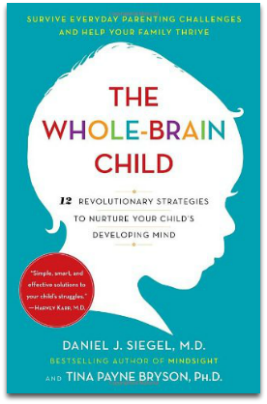 Albert Einstein once said the most important question for us to answer is, “Is this a friendly universe?”
Albert Einstein once said the most important question for us to answer is, “Is this a friendly universe?”
Infancy is when we answer that question.
We are adaptable precisely because we are unfinished at birth. Babies “build” a brain that’s best suited to the environment they experience.
In his popular book The Whole-Brain Child: 12 Revolutionary Strategies to Nurture Your Child’s Developing Mind, Dr. Dan Siegel, Clinical Professor of Psychiatry at UCLA, warns the experiences we provide our children with lay the groundwork for healthy brain integration and long-term mental health.
Consider a baby who has been put down to sleep alone. He immediately feels unsafe. His cave baby instincts tell him a saber-toothed tiger may be lurking in the dark. His little body is flooded with the stress hormones cortisol and adrenaline. He starts to cry.
His mother picks him up and soothes him. He relaxes. His body sends out comforting biochemicals which help create neural pathways for self-soothing. As this pattern is repeated, his brain becomes wired to believe the universe is friendly. He is safe. In time, he’ll be able to use those neural pathways to soothe himself.
Well-known developmental psychologist Erik Erikson proposed healthy psychological outcomes are dependent on the quality of infant caregiving. When the balance of care is empathetic, babies grow into children who naturally trust the world. And trusting children feel confident about venturing out and exploring independently.
Toddlers, tantrums and the terrible twos
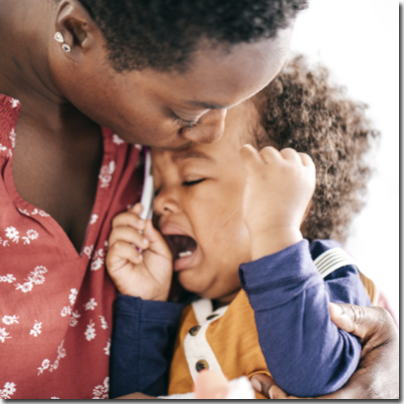 Toddlers build up stress hormones as they cope with the challenges of daily life.
Toddlers build up stress hormones as they cope with the challenges of daily life.
But the part of the brain which allows them to express strong emotions verbally, the frontal cortex, still isn’t fully developed.
Luckily, nature designed toddlers with a foolproof method to release emotional overload: tantrums.
Toddlers don’t enjoy tantrums. They don’t intentionally “throw” a tantrum to manipulate us. Tantrums are outside a toddler’s control.
When emotions overwhelm a toddler, their brain isn’t able to maintain rational control. Their physiology helps restore equilibrium by having a meltdown to release negative feelings and frustrations.
Positive parents see tantrums as an opportunity to connect and deepen the trust our children already have in us. So, what’s the best way to deal with a tantrum?
Firstly, a tantrum is not a reflection on you. It’s normal. You are an amazing parent. Take a deep breath.
Then, sit patiently with your child. Hold her close. Empathize. Give her words so she can understand her emotions. “You are so upset…You’re sad to say good-bye to Daddy, you’re crying…” Acknowledge her anger and frustrations. Accept her emotions and wait it out. By doing this you’re strengthening her belief that the universe is a safe place. She’ll feel free to explore her feelings no matter how messy they may be.
The critics of positive parenting may suggest walking away until your child calms down. They might tell you you’re “rewarding” the tantrum by acknowledging it. They think you’re making the tantrums worse.
Why are the critics wrong?
When young children feel abandoned, they become anxious. The tantrum may temporarily stop, but you create deep insecurity.
We don’t treat a toddler as a “failure” for stumbling as they learn to walk. So why would we treat them harshly when they stumble through their emotional growth?
How we respond to our children’s messy emotions and wild behavior determines what kind of brain they build. Compassion and empathetic guidance help toddlers develop a brain that can regulate itself emotionally within a few short years.
Eventually, Their Brain Starts to Gain Control
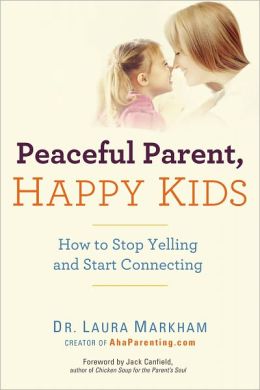 By age six, children’s nervous systems are almost completely wired. Your child’s ability to trust, self-soothe and empathize has been established, and he has developed a working model of relationships.
By age six, children’s nervous systems are almost completely wired. Your child’s ability to trust, self-soothe and empathize has been established, and he has developed a working model of relationships.
His experiences have given him a better picture about what to expect from people. And he has developed strategies to manage his own emotions.
In her book Peaceful Parent, Happy Kids, Dr. Laura Markham suggests kids who believe they can’t rely on adults to help them self-regulate have “big feelings” that burst out easily.
While kids who are unsure whether they can count on adults may seem more controlled, they’re more fragile than they look. They may act nonchalant, but their little hearts are racing.
The lucky kids who’ve had positive parents understand and self-regulate their emotions most of the time.
They feel secure.
They’ve built internal highways to deliver soothing biochemicals, which regulate fear and anger responses. They use their full brainpower to function at a higher level. They feel comfortable in their own skin and with other people’s emotions, so they’re able to connect deeply with others.
Of course, those connections with others aren’t always friendly. So, when your four-year-old daughter hits her baby brother, and your “naysaying” friend suggests she needs to be disciplined, how do you respond?
By daring to break free from traditional punishment-based discipline!
The science is in. It’s consistent and compelling.
Want to raise a child who is kind, happy, cooperative, self-disciplined and whom you can trust to do the right thing as a teenager?
No time outs. No spanking. No threats. No yelling. No cry it out.
Punishment erodes your connection with your child. And without connection your child has zero motivation to behave as you’d like.
Connection is your parenting superpower.
It is the only reason kids give up what they want to do and do what you want instead. They trust you and don’t want to disappoint you.
If you lose connection, parenting becomes a lot more difficult.
Why Punishment Doesn’t Work
Punishment is intended to hurt a child either physically or psychologically. It aims to teach a lesson. To avoid “bad” behavior again.
Studies show, however, that punishment encourages more bad behavior. And more punishment. And so the cycle begins.
How does punishment make the child feel?
He begins to believe he is “bad.” Bad for having naughty feelings. Wrong for misbehaving. Wicked for making us, parents, angry.
A child who thinks he’s bad will act badly.
Punishment prevents children from taking personal responsibility for their actions. An authority figure hands out punishment. Subconsciously he doesn’t believe he can behave on his own. He begins to rely on the authority figure to “make” him behave.
And punishment teaches kids to focus on whether they’ll get caught and punished, rather than on the negative impact of their behavior.
It impedes moral development.
Punishment By Any Other Name Will Fail Just as Miserably
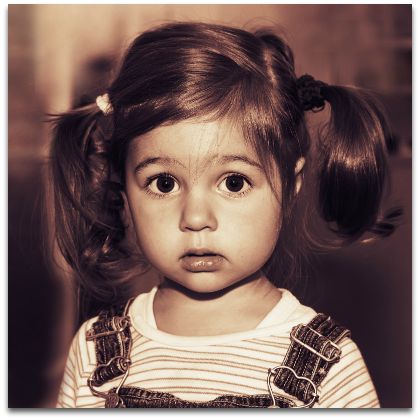 Psychologist Elizabeth Thompson Gershoff analyzed more than 80 studies and found a “strong correlation” between corporal punishment and negative behaviors (including increased aggression and antisocial behavior).
Psychologist Elizabeth Thompson Gershoff analyzed more than 80 studies and found a “strong correlation” between corporal punishment and negative behaviors (including increased aggression and antisocial behavior).
Among her findings Gershoff reported a 2009 study concluded children who were frequently spanked “had less gray matter in certain areas of the prefrontal cortex that have been linked to depression, addiction and other mental health disorders.”
Damaging effects aren’t limited to physical punishment. Time outs, threats and rewards offer a new means, but to the same ends — control.
Do you really want to control your child?
Barbara Coloroso, parenting consultant, says parents of teenagers often complain, “He was such a good kid, so well behaved, so well mannered, so well dressed. Now look at him!”
She offers the following reply:
“From the time he was young, he dressed the way you told him to dress; acted the way you told him to act; he said the things you told him to say. He’s been listening to somebody else tell him what to do….he hasn’t changed. He is still listening to somebody else tell him what to do. The problem is, it isn’t you anymore; it’s his peers.”
Love as the Ultimate Motivator
You love your child unconditionally.
All parents do. But does your child feel loved unconditionally? ‘
Psychoanalyst Alice Miller observed it’s possible to love a child “passionately – but not in the way he needs to be loved.”
So, is it more important how we love our kids rather than how much?
Mainstream discipline techniques erode children’s perception of unconditional love. They make children feel loved only when they behave in a certain way.
These techniques try to control children’s behavior by using love as a weapon.
Time outs withdraw love. Rewards shower love.
When children feel loved unconditionally, they feel good about themselves.
They thrive. And live up to their full potential.
Choose to Guide Instead of Control
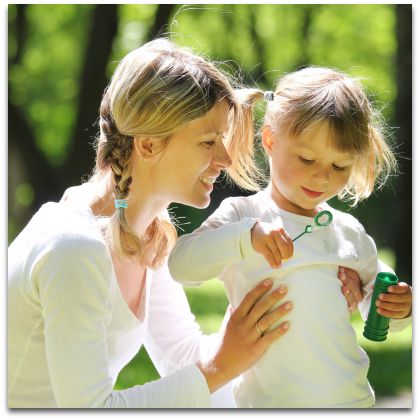 Research has shown repeatedly that punishing criminals cannot prevent “crimes of passion”.
Research has shown repeatedly that punishing criminals cannot prevent “crimes of passion”.
When we are driven by fierce emotions we don’t think rationally.
Imagine your child “misbehaved” by excitedly ripping open the wrapping of a gift at his birthday party.
Only five minutes previously you’d asked him to wait until the end of the party.
You gently explain you understand how excited he is. You realize he couldn’t help himself from opening the biggest gift on the table that looked like a yellow digger. You’re not mad but his behavior isn’t appropriate, and you’ll talk about it after the party. You give him a hug and send him off to play with his friends. You’re practicing positive parenting.
Then you sense your mother-in-law by your side. She disapprovingly quirks up her eyebrow and says, “That child turned 5 today. He should be able to control himself better. You should have taken away his present for so blatantly disobeying you. You are too soft on him.”
Science tells us our child’s rational brain doesn’t have full control over his emotional brain when he’s only five. When he’s overcome with emotion, positive or negative, it isn’t possible for him to comprehend the punishment he may suffer as a result of his actions.
Is your mother-in-law right? If you don’t start dishing out harsh punishment is your son bound to become a delinquent teenager, growing marijuana in the backyard, skipping school and breaking the law?
Of course not.
Children need their parents for guidance. Loving guidance.
Traditional discipline may be easier. The fear it generates produces immediate short-term results, especially when kids are young.
But it doesn’t work in the long run.
It’s like trying to achieve vibrant health by relying solely on fast food. It may make you feel full. It’s cheap and easy. And everyone is eating it. But in the long run it will make you sick, fat and lazy.
So, how do we raise healthy, loving, cooperative children?
Loving guidance. Model moral behavior. And a super strong connection with our children.
In Peaceful Parent, Happy Kids, Dr. Laura Markham suggests loving guidance teaches a child to assume responsibility for his actions, including making amends and avoiding a repeat, whether the authority figure is present or not much more effectively than traditional discipline. She cites the following reasons:
- Loving guidance increases our influence with our child. It doesn’t suggest permissive parenting, which makes children feel nobody is in charge. Guidance helps children assume self-responsibility. When we guide with love, our children see the rules and habits we promote make sense. They’re more likely to “own” them.
- Loving guidance helps children feel safe. It allows children to concentrate on essential developmental tasks. Authoritarian parenting keeps children in a state of anxiety, anticipating the next mess up and subsequent punishment.
- Loving guidance strengthens our bond with our child. When our focus shifts from the bad behavior to our relationship with our child our connection intensifies.
- Loving guidance increases our empathy for our child. Kids aren’t here to give us a hard time. They’re small people trying their best and they sometimes mess up. Loving guidance frees us to feel compassion for our child. Punishment on the other hand demands that we harden our hearts and abandon our children emotionally when they need us most.
Embrace Positive Parenting Despite the Critics!
As Charles Raison said, “One generation full of deeply loving parents would change the brain of the next generation, and with that, the world.”
As Positive Parents, you’ve put your child’s needs above the expectations of society. Good for you.
The critics may have different views. But your choice for positive parenting is the right choice for you.
In years from now your kids won’t remember what you said, but they’ll remember how you made them feel.
The 2-Minute Action Plan for Fine Parents
Embracing positive parenting is a huge investment in your child’s emotional and psychological development.
Whenever you doubt yourself or a critic tries to challenge your resolve:
- Take a deep breath.
- Remember why you’ve chosen positive parenting—the well-being of your child is in your hands.
- Remember positive parenting is the scenic route, not a shortcut. It comes with its own challenges, but the juice is so worth the squeeze.
- Remember your choice is backed by countless scientific and psychological studies.
The Ongoing Action Plan for Fine Parents
It’s a cliché but knowledge is power. Here is a list of a few awesome books for positive parents.
If possible, read them all. They will arm you with the powerful knowledge to protect yourself in the face of judgement and criticism.
If you can’t read them all just yet, get them anyway and keep them in a place of easy reach. Every time you face a critic who makes you question yourself, randomly open any page in any one of these books and start reading. Every single one of these books is potent enough to still help you get back on track!
- Peaceful Parent, Happy Kids by Laura Markham
- Unconditional Parenting
by Alfie Kohn
- The Whole-Brain Child by Daniel Siegel
- How to Talk So Kids Will Listen & Listen So Kids Will Talk
by Adele Faber and Elaine Mazlish.
- Positive Discipline
by Jane Nelsen
- Raising Your Spirited Child
by Mary Sheedy Kurcinka
- The 5 Love Languages of Children
by Gary D Chapman
- Parent Effectiveness Training
by Thomas Gordon
- Screamfree Parenting
by Hal Edward Runkel
While I agree with much of the parenting parts of this piece, I am confused by the discussion of the human brain as “tiny.” Birth is not as painful a process in most other species because relative head/brain size is so much smaller. It’s the price we’ve paid for “knowledge” in a way. I get that a baby’s brain is smaller than an adult brain, but so are its legs and lungs, etc. Are you saying that other species don’t increase brain size much after birth? I can’t imagine in the case of, say, a blue whale that could be true. (Not that this is relevant to your overall points, but on behalf of my brain-mapping scientist brother I feel the need to pipe up.)
That’s an interesting question, Korinthia. It sent me googling for a while… I read a bunch of things and found these following excerpts that are relevant to what you bring up. Check it out. It’s fascinating!
Quoting starting halfway through the 2nd full paragraph from here – http://bit.ly/1NcqsB2
*Shudder*. Can you imagine a 21 month pregnancy? 😉
Tracy, you’ve written a clear and encouraging post! It’s so wonderful to see other people embracing CONNECTION as the main point of parenting. “How can I connect?” has become my parenting mantra; it helps me keep the big picture in mind, and almost always gives me “space” to see a solution to the problem at hand.
So true, Amy! I’d found at some point that I’d somehow grown into a fairly impatient and snappy person… and that really did not help when I was trying to become a “better” parent. When I started making *Connection* the primary requirement of all my interactions (or at least, as many as possible), things started to turn around. A wonderful side effect is that this seeps into all other aspects of your life as well — I now find that I have much better relationships with my spouse, siblings, parents, friends etc. Can’t argue with a wonderful bonus like that 🙂
I found this article to be very helpful. As a new parent, you receive a lot of advice (and often it’s harsh and critical). What this article stresses makes sense. Children need to feel loved and as parents, our role should be to guide them and equip them with the tools they need to thrive in life. Thank you for this great article. I will be sharing with friends and family.
Well said. When I was a new parent, I was criticized, by well-meaning people, for all the wrong things. Breastfeeding “on demand” — “you’re going to spoil her.” Picking up the baby every time she cried. I was going to “spoil” her. Paying “too much” attention to my daughter. Definitely spoiling her. Refusing to consider spanking as a form of discipline. Ditto. It seems funny now, but I wish I’d had more support for trusting my instincts.
Hey again Stephanie,
Totally agree! I am still breastfeeding my two and a bit year old….it feels right for both of us so why not hey! I have written a post on extended breastfeeding which I’ll publish soon, you may be interested in it. And the term “spoil” is a funny one….generally fruit spoils when you ignore it but funny how people say children spoil when you give them attention. Sometimes I try to think how would we parent if there were no baby stores, nobody to make a profit and just trusted out instincts – would look a bit more natural I think 🙂
Hi Kathy,
Thank you for your comments! I really enjoyed writing this post – it took a long time, so comments like yours make it worth it! It’s so hard as a new parent with pressure from well meaning friends and family to conform to conventional parenting which is generally centred around making things better for adults and not taking the child’s very genuine needs into consideration. And “thrive” is so right….we don’t just want them to survive childhood. Happy you enjoyed it and thank you for sharing 🙂
I think this is a great idea, however Im unclear of HOW to deal with a child (now 6 1/2) who blatently does not listen and screams terribly for long periods of time if she is not allowed to do as she pleases?? Im not sure of what to do.
Hi Nicole,
I’m hearing you! My little guy is only 2 and it sure is a challenge when they just won’t listen. I’ve just been trying to gently explain to Thomas why he can’t hit me with his new baseball bat! 🙂
I’m planning to follow up this post with a How To post and no doubt Sumitha will have more amazing posts in this Positive Parenting series which will address practicalities as well.
In the meantime I can’t recommend the book Peaceful Parents, Happy Kids by Dr Laura Markham enough – it’s a wonderful and engaging read! She outlines the reasons for why certain authoritative parenting techniques may result in the desired effect in the short term but in the long run will backfire and undermine your relationship with your child. Then she goes on to give practical tips and advice broken down by age group. I am sure it would help you with your six year old. Positive parenting requires more patience and time investment upfront but in the long run helps build a solid foundation so that future challenges will be easier to deal with.
I hope that helps, happy reading and thank you again for your comment,
Cheers
Tracy
Sorry to hear you are having a rough time at present, Nicole. Hang in there and stick with your commitment to positive/connected parenting, and things will turn around (I am saying that from personal experience).
I can’t agree with Tracy more about her recommendation of the book “Peaceful parents, happy kids” by Dr. Laura Markham. There is a lot of great stuff on the Dr. Markham’s site too. Also, from your description, it seems like you may have a highly spirited child on your hands — so be sure to check out “Raising Your Spirited Child” by Mary Sheedy Kurcinka too, if you get a chance.
Also we have another article on this site that had stuck a nerve with a lot of readers – you may want to check it out. Here it is – How to Respond to An Emotional Meltdown to Raise Strong Kids.
Good luck!
Wonderful article, Tracy! Thorough, engaging, and smart. I love the balance between scientific information and practical advice, and this piece has a lot of heart. I wish I could’ve read this article 24 years ago when I was pregnant with child #1. 😉 When I perfect time travel, I will send this back to my 25-year-old self.
Thank you Stephanie! Very happy you enjoyed the post. And love your humour! I could use that time machine for a few things myself :))
Awww, thanks for that wonderfully encouraging comment, Stephanie! And do put me on the list for a turn on the time machine as well 🙂
Hooray!! Well done and loved this fabulous article. It’s so amazing to see the evolution of parenting begin taking hold. I can’t wait to share!
(You can read my own story of changing my mindset at my blog.)
Thanks so much Lorissa for your kind comments. I agree – it is amazing to see parenting evolving and makes all the difference when we understand why different approaches “work” (or don’t work). Love your site too! 🙂
Thanks for the wonderful comment, Lorissa. I don’t remember what exactly turned me towards connection based parenting, but if every one of us who has embraced it passes it along, I think it will be a wonderful world indeed!
PS: Love your idea of a “listening company”… It is so intriguing!